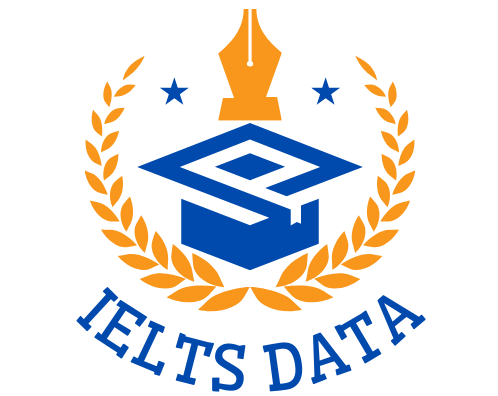Describe a time when you did a lengthy calculation without using the calculator.
- When was it?
- Where was it?
- How did you?
- How did you feel about it?
Sample 1:- Describe a Time When You Did a Lengthy Calculation without Using the Calculator
During my college years, I encountered a situation requiring me to perform an extensive calculations without a calculator. This demanding task tested my mathematical prowess and helped me develop persistence and problem-solving skills.
This challenge arose in the context of an applied physics course, where our professor assigned us an elaborate project that involved analyzing data and performing various calculations. The purpose of this restriction was to enhance our mental arithmetic and reinforce our understanding of mathematical concepts.
I tackled this project in my dormitory, creating a quiet, focused workspace to concentrate on complex calculations. To address the intricate problems, I developed a step-by-step approach that broke each issue into smaller, more manageable pieces. This strategy enabled me to concentrate on individual aspects of the problem while working systematically toward the overall solution.
The process was unquestionably demanding, necessitating intense concentration, patience, and determination. As I navigated through the calculations, I noticed a significant improvement in my mental arithmetic skills and my ability to discern patterns and relationships among mathematical concepts. This experience underscored the value of acquiring a solid foundation in mathematical skills, which could then be applied to more complex problem-solving scenarios.
After completing the calculations and submitting the project, I felt immense fulfillment and gratification. The initial challenge of carrying out extensive calculations without a calculator ultimately fostered a deeper appreciation for the subtleties of mathematics and its real-world applications. The experience taught me the importance of tenacity and diligence in overcoming obstacles, instilling the confidence to confront even the most formidable challenges in the future.
Sample 2 Describe a Time When You Did a Lengthy Calculation without Using the Calculator
During a summer internship in the engineering field, I encountered a situation requiring me to perform lengthy calculations without a calculator. This formidable task not only tested my mathematical skills but also taught me the value of persistence and resourcefulness.
This challenge occurred while I was working on a project that involved analyzing complex data and performing various calculations to optimize a mechanical system. Due to limited access to computers and electronic devices at the construction site, I had to rely on my mental arithmetic and manual problem-solving skills.
I tackled this challenge at the project site, where I set up a makeshift workspace to focus on intricate calculations. To address the complex problems, I adopted a systematic approach that involved breaking each problem down into smaller, more manageable steps. This strategy enabled me to concentrate on the individual elements of the problem and work progressively toward the overall solution.
The process was undeniably rigorous, necessitating intense focus, patience, and perseverance. As I worked through the calculations, I observed significant improvements in my mental arithmetic abilities and my capacity to identify patterns and connections between mathematical concepts. This experience highlighted the importance of having a strong foundation in mathematical skills, which could be applied to solve complex problems in real-world scenarios.
Upon completing the calculations and successfully implementing the optimized solution, I felt an overwhelming sense of accomplishment and satisfaction. The initial challenge of conducting extensive calculations without a calculator ultimately led to a deeper appreciation for the nuances of mathematics and its practical applications in engineering. This experience taught me the importance of determination and adaptability in overcoming obstacles, instilling in me the confidence to face even the most daunting challenges in my future endeavors.
Follow-Up Questions Describe a Time When You Did a Lengthy Calculation without Using the Calculator
Question 1:- How often do you make calculations?
Answer:- As an individual working in the field of data analytics, I find myself making calculations quite frequently. In my professional life, I analyze data sets, create models, and interpret results, which all involve varying levels of mathematical computation. Additionally, in my personal life, I often calculate expenses, manage my budget, and make estimations for various tasks. While I rely on technology for complex calculations, I also consciously practice mental arithmetic to maintain and improve my overall calculation proficiency.
Question 2:- What instruments do you use to make calculations?
Answer:- To perform calculations, I choose from a range of instruments based on the complexity and nature of the task at hand. For quick arithmetic and rough estimates, I primarily rely on mental calculations. However, for intricate problems or when accuracy is crucial, I make use of a scientific calculator or specialized mobile applications. Furthermore, when confronted with extensive data sets or sophisticated calculations, I often work with software like R Studio or programming languages like JavaScript, which provide powerful computational capabilities and versatile tools for accurate results.
Question 3:- Is the significance of manual calculations declining?
Answer:- The significance of manual calculations has experienced a decline as the rise of digital tools and technology offers more convenient and accurate solutions. With calculators, software, and smartphone apps, people can effortlessly perform complex calculations in a fraction of the time. Despite this shift, manual calculations still hold merit in certain contexts, such as reinforcing fundamental math skills, enhancing mental agility, and enabling individuals to handle basic calculations independently when technology may not be readily available or suitable.
Question 4:- Do you know anyone who makes fast and accurate calculations?
Answer:- Certainly, my mathematics professor is someone who is renowned for making fast and accurate calculations. With years of experience and a deep understanding of mathematical concepts, he has developed an exceptional ability to perform mental arithmetic quickly and precisely. During lectures, he often demonstrates this skill by solving complex problems on the fly, without resorting to a calculator or any other aids. Witnessing his expertise in action has motivated and enlightened his students.
Follow-us on IELTSData Facebook
Table of Contents
